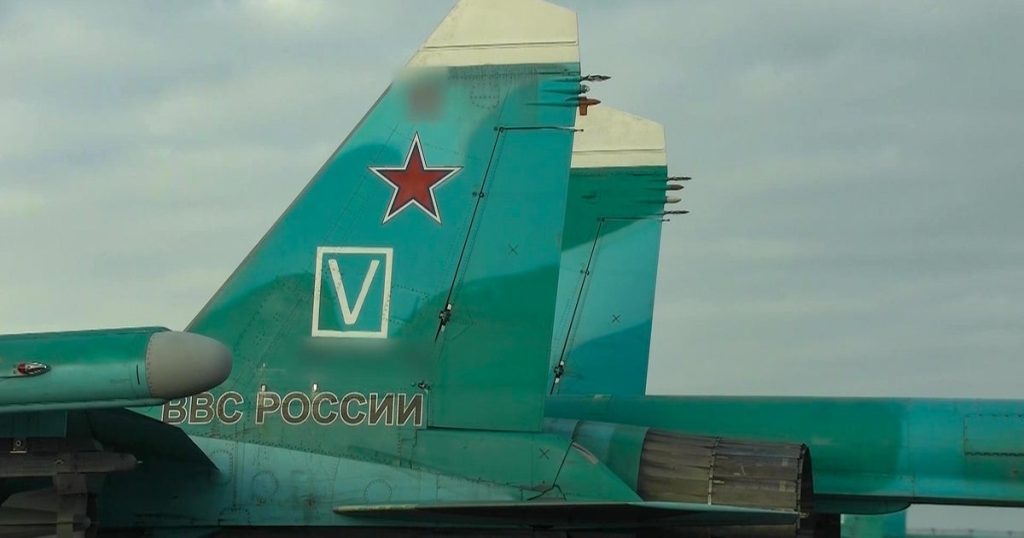A Russian military court recently delivered a 27-year prison sentence to Yegor Semenov, who was convicted of attempting to poison military pilots at a graduation party. The plot, allegedly orchestrated on behalf of Ukrainian intelligence, involved sending tainted alcohol and cakes to the event. This case raises substantial concerns regarding espionage and the escalating tensions between Russia and Ukraine as the conflict enters its fourth year.
| Article Subheadings |
|---|
| 1) Overview of the Conviction |
| 2) Details of the Poisoning Plot |
| 3) Implications of Espionage on Relations |
| 4) Recent Trends in Military Violence |
| 5) Reactions from Ukrainian Officials |
Overview of the Conviction
On Tuesday, a military court in Russia sentenced Yegor Semenov to a lengthy 27-year prison term after he was convicted of attempting to murder several military pilots through a sinister plan. This conviction adds a new dimension to the ongoing conflict between Russia and Ukraine, where accusations of espionage have become all too common. The court’s ruling underscores the severity with which the Russian government treats any acts perceived as threats to national security, particularly in the context of the enduring war.
Details of the Poisoning Plot
According to investigators, Yegor Semenov was contacted by the Ukrainian secret service and promised a substantial sum of $5,000 for executing his plot. The idea was simple yet chilling: deliver poisoned alcohol and cakes to a graduation party for military pilots in Armavir, a southern city in Russia. The alleged poison was later identified as a lethal medical substance, carefully concealed in cakes and bottles of whisky and cognac.
However, the scheme failed spectacularly when the military pilots grew suspicious of the package and opted for an examination, ultimately revealing the deadly contents. Visual evidence of the tainted cake was shared on social media platforms, providing a stark reminder of the plot’s seriousness. This incident has raised questions about both security measures within military ranks and the efficacy of intelligence operations targeting Russian military assets.
Implications of Espionage on Relations
The conviction of Semenov is emblematic of worsening relations between Russia and Ukraine, marked by increasing hostilities and allegations of covert operations. The Kremlin has accused Ukrainian agencies of orchestrating various assassination plots against Russian officials in recent months. The implications of this case extend beyond individual culpability, touching on the broader geopolitical landscape in which espionage activities are perceived as critical elements of wartime strategy.
In light of recent events, such as the killing of senior generals and other military personnel, the Russian authorities have become ever more vigilant and proactive in addressing perceived threats. The trajectory of these relationships raises questions about how far the conflict could escalate if acts of sabotage and assassination continue to occur.
Recent Trends in Military Violence
The apparent surge in violence against Russian servicemen is notable, contributing to fears regarding the safety of military personnel behind the frontlines. Following Russia’s aggressive military campaign against Ukraine, there have been a series of high-profile killings, including the assassination of senior general Yaroslav Moskalik. His death reportedly occurred in a car explosion near Moscow, adding fuel to allegations that Ukraine is employing targeted strikes against key military figures.
In December 2023, the killing of Igor Kirillov, head of the Russian military’s chemical weapons unit, further illustrated this trend. Reports indicate that he was eliminated through an explosive device planted in a scooter, a tactic consistent with covert operations aimed at destabilizing enemy leadership. These incidents not only provoke retaliatory sentiments within Russia but also signify a shift in tactics as Ukraine attempts to weaken its adversary from within.
Reactions from Ukrainian Officials
While the Ukrainian government typically refrains from commenting on specific covert operations, it has occasionally taken responsibility for high-profile attacks. For instance, authorities have acknowledged involvement in the assassination of nationalist figure Darya Dugina and the bombing of a cafe in Saint Petersburg that killed military commentator Maxim Fomin.
Moreover, following the assassination of Illia Kiva, a former pro-Moscow parliament member in Russia, Ukrainian military intelligence publicly commended the act of violence, asserting that traitors will face similar fates. The response to rising tensions hints at a bleak outlook for future diplomatic engagement, underscoring that both nations are increasingly inclined toward aggressive maneuvers over peaceful resolutions.
| No. | Key Points |
|---|---|
| 1 | A Russian military court sentenced Yegor Semenov to 27 years for attempting to poison pilots. |
| 2 | Semenov was allegedly recruited by Ukrainian intelligence for the mission. |
| 3 | The plot involved sending poisoned alcohol and cakes to a military event. |
| 4 | The failed assassination attempt raises concerns about military security. |
| 5 | The situation reflects the escalating tension and violence between Russia and Ukraine. |
Summary
The conviction of Yegor Semenov highlights the increasing severity of legal repercussions for actions deemed treasonous in Russia. As hostilities between Russia and Ukraine persist, the risks associated with espionage, targeted attacks, and military violence are greater than ever. This latest incident not only underscores the challenges facing military personnel but also raises questions about future diplomatic efforts between the two nations in this protracted conflict.
Frequently Asked Questions
Question: What was the main crime committed by Yegor Semenov?
Yegor Semenov attempted to murder military pilots by sending poisoned alcohol and cakes to their graduation party, which led to his conviction for state treason and terrorism.
Question: Why did Semenov carry out this plot?
Semenov was allegedly recruited by the Ukrainian secret service and promised $5,000 for his efforts, which were motivated by the ongoing conflict between Russia and Ukraine.
Question: How has the Russian government responded to espionage cases?
The Russian government has increased vigilance against espionage activities, viewing such actions as serious threats to national security, especially in light of recent violence against military personnel.


